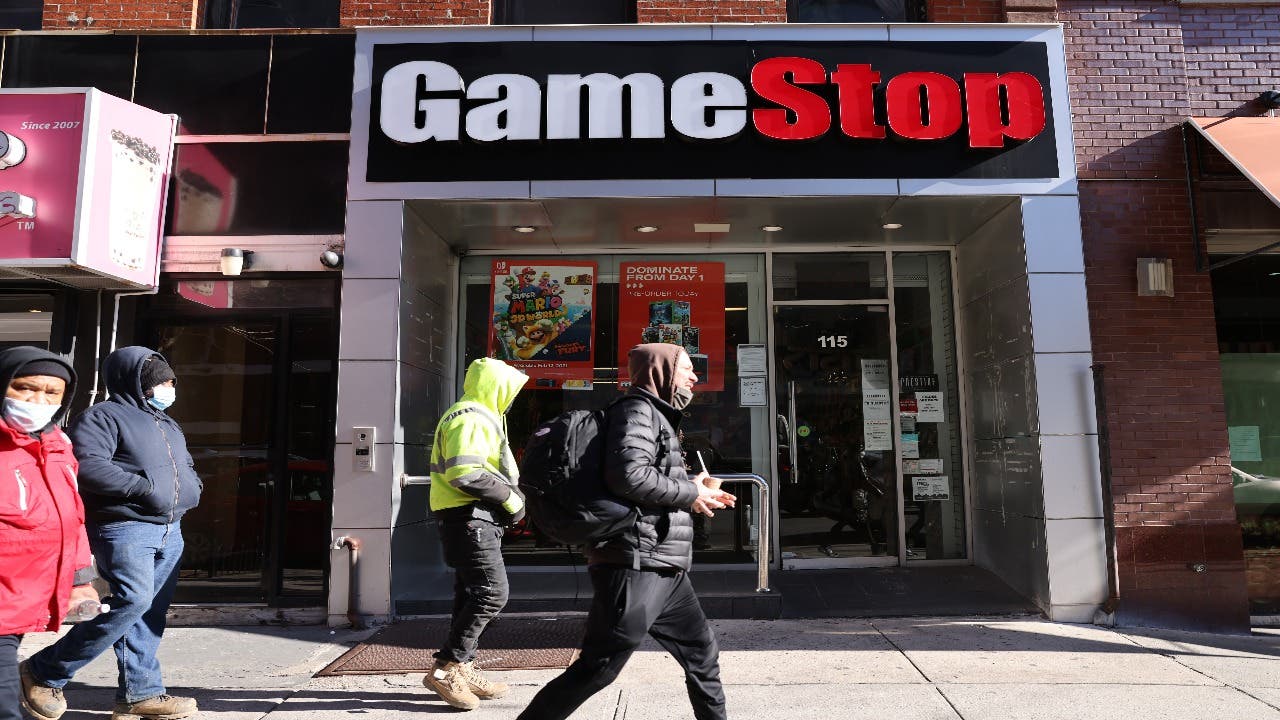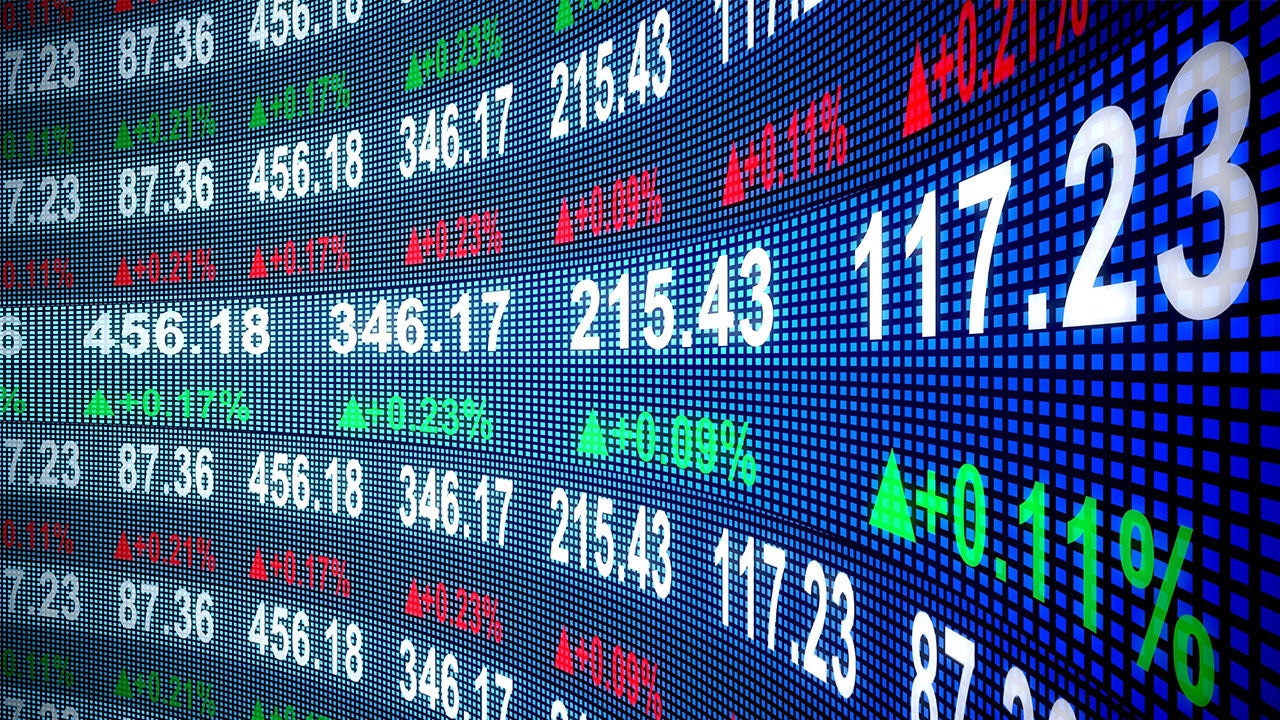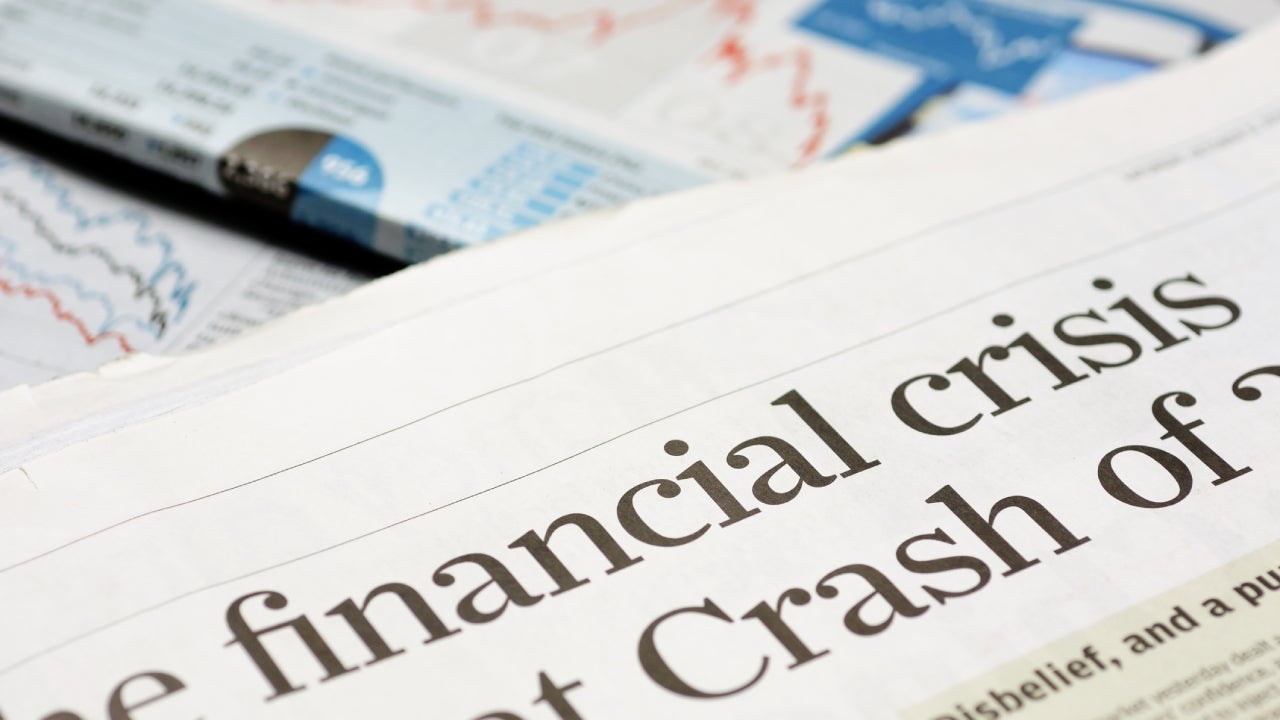‘To the moon’: How GameStop-boosting stock traders kicked off a shocking Wall Street feeding frenzy

A feisty group of rebels goes against the evil empire. It’s a classic Hollywood setup for a good-vs-evil tale like Star Wars. The story is simple to understand and easy to moralize, and it’s how some pundits are characterizing the fight between a group of traders who have rallied behind GameStop stock and forced some short sellers to take significant losses.
But this narrative is a bit too simplistic to show what’s actually happening with GameStop — who’s winning, who’s losing and why. Blow up that story like the Death Star blew up Alderaan.
While the Reddit group Wall Street Bets may have kicked off the rage for GameStop (and arguably other stocks), it’s been sustained by much larger players who have orders of magnitude more money than a purpose-driven group of individual traders in a corner of the internet.
Regardless of which side you’re on in this fight, everyone’s goal is to make money. GameStop is not the site of some struggle of good vs. evil, poor traders vs. the Sith Lords of Wall Street. But as small traders gleefully besiege a hedge fund titan, it does bring out some serious issues and real anger that have been boiling under the surface during the past decade and maybe longer.
“GameStop is a plaything, and it’s a plaything for people who have more resources than you have,” says Jim Gillies, lead advisor of Motley Fool Hidden Gems Canada, an investing newsletter.
The upshot for most individual investors is clear: These kinds of volatile stock plays can put your portfolio at significant risk. There’s plenty of money to be made in the stocks of quality companies trading at reasonable prices over a longer time horizon.
GameStop’s rapid ascent higher on a short squeeze
It’s almost impossible to believe: shares of GameStop, a struggling (but cash-flowing) retailer of video games, has soared more than 20 times in value in just a couple of weeks. On January 12, the stock closed around $20 per share, and by January 28 the stock had breached $400 during the day.
What’s going on? The financial media’s short version is that a group of traders pushed the stock to outrageous highs as they battled another group of wealthier hedge-fund investors who had wagered big money that GameStop was going broke. This latter group would profit if GameStop stock declined, through a well-known trading technique called short selling.
It sounds like a classic David vs. Goliath match-up, but that framing misses key aspects of what’s going on.
The group that supposedly caused the stock to spike are speculators on a Reddit message board called Wall Street Bets. Their opponents are supposedly more sophisticated investors, including a hedge fund named Melvin Capital, that sold short the stock to profit on its decline.
In a short sale, a trader borrows stock from a broker, sells that into the market, with the expectation that it declines in the future. If it does, the trader re-buys the stock at the lower price and books a profit. If the stock rises, however, the trader suffers a loss and may have to buy the stock at a higher price. Short selling is a common, accepted part of the market, and it helps ferret out weaker companies, even fraudulent ones, and helps the market price them correctly.
But short sellers are sometimes put in a tough spot, especially if the stock rises, because the market understands that they must re-buy the stock later. If the stock rises high enough, the short seller may be forced to re-buy the stock at a higher price due to a lack of equity. That is, the short seller’s broker forces the repurchase of the stock at whatever price the stock is.
This situation means that if a stock rises, it may continue to rise, as investors expect the short seller to be forced to buy the stock in the future. This dynamic can create a spiral in which the stock soars because investors know that the short seller still must re-buy the stock and will be forced to do so at any price to close the position. This situation is called a short squeeze.
That’s approximately the situation that GameStop has found itself in, though there are other nuances to it, such as options traders buying call options and creating a dynamic that forces the stock higher as some market participants hedge their positions by buying more stock.
‘Hold the line’: A targeted strategy for profits gone viral
Much of the media has attributed this squeeze to a renegade band of speculators on Wall Street Bets, all using Robinhood accounts, as the stereotype has it. But there’s no way this relatively small group of individual traders has the financial muscle of even a few big financial players.
These large players can pour billions into a trade or sustain the billions in losses that reportedly affected the major short seller in GameStop, Melvin Capital, which has already needed a fresh infusion of cash from other funds to keep it afloat.
That’s not to say that speculators on Wall Street Bets didn’t have a formative role in this short squeeze. Their analysis and promotion of the stock in a public forum unified a core set of traders who saw an undervalued stock trading for a few bucks and the potential for a squeeze. These traders lit the kindling that became a conflagration that now threatens to become a dumpster fire.
But it was the inrush of major investors in recent weeks that really propelled the stock higher, not the core traders of Wall Street Bets or the many mom-and-pop retail traders who have piled in with hundreds or perhaps thousands of dollars as the stock began its moon shot.
“The media is missing the quantitative trading component of this,” says Sam Hendel, president and portfolio manager at Levin Easterly Partners in New York City. He notes how computerized algorithms can pick up on the slowly increasing trading activity and then exploit it, leading to snowballing prices. “The algorithmic trading is overwhelming the human trading,” he says.
That’s evident in the trading volume of GameStop flowing through the market in recent days. GameStop has about 70 million shares outstanding, but its volume on January 26 was about 179 million shares. So each share on average was traded more than two times that day. But the real velocity is likely much higher since some shareholders aren’t selling their shares at all.
And on some days recently, the total daily dollar volume of GameStop shares topped the market, rivaling such mammoth companies as Tesla and Apple. That’s not the level of financial muscle that retail traders can bring to bear, even if they were coordinated.
Wall Street strikes back: Some brokers restrict access to volatile stocks
As trading reached a fever pitch in GameStop, a number of brokers such as Robinhood and Interactive Brokers stepped in on Thursday to restrict the ability to transact in some highly shorted names. Besides GameStop, these included AMC, a troubled movie theater chain, and retailer Bed Bath & Beyond, among others. Predictably, these affected stocks fell, sometimes precipitously.
Robinhood allowed traders in these restricted securities to close their position but not establish a new one — so they could sell the stock but not buy it. The start-up broker also raised margin requirements for some securities, meaning traders will need more equity in their account if they’re trading them on margin. Robinhood initially offered little explanation for its moves.
Interactive Brokers made similar moves, limiting trading in some stock options to sales and upping margin requirements for buying and short selling these stocks indefinitely. Charles Schwab and TD Ameritrade put in place similar restrictions on trading in highly volatile stocks.
Given its motto of democratizing investing, Robinhood looked hypocritical for cutting off retail traders who have flocked to the app, especially for its free options trading. The response on social media was particularly swift and intense, with traders calling it a rigged system that favors Wall Street and some quickly searching for another broker who could process trades.
“The move is very bad for Robinhood’s reputation going forward with their customers,” says Dr. Richard Smith, CEO of The Foundation for the Study of Cycles. Robinhood’s bigger issue is that they’ve angered retail investors that they were supposed to be helping, he says.
Smith notes the irony of Robinhood’s position and business model, where it earns significant money from large market makers such as Citadel Securities that pay to see the broker’s order flow. Citadel creates liquidity for the market, and gains insight into the order flow of Robinhood’s traders, which it can then use to get a better price on trades, if it so desires.
There’s an old adage in business: if you’re not paying for the product, you are the product. And while many brokers are paid for order flow, they’re not as heavily reliant on it as Robinhood.
“Robinhood’s customers are Citadel Securities and others who pay them for massive order flow from a massive and naive public,” says Smith. Because it can be paid for its order flow, “Robinhood is heavily incentivized to create a transactional feeding frenzy.”
Gillies points to two issues that may have caused the brokers to restrict trading in some stocks, both centered around legal jeopardy.
“They’re worried about their potential liability,” he says. “From market regulators, who might say that you’re abetting market manipulation and from their retail investors blowing themselves up” and then claiming that the brokers should have protected them from placing their bets.
Seemingly in response to the outrage, Robinhood announced on Thursday evening that it was allowing “limited buys” of the formerly restricted securities starting Friday, Jan. 29. It also clarified that its decision was based on managing risk and not at the direction of the market makers it routes trading to (i.e., the companies that pay for the broker’s order flow.)
It’s worth noting that Robinhood is planning an IPO this year, and hemorrhaging customers in the months before a potential debut would not look good to potential investors in its stock.
Investors are livid over stock trading restrictions
Investors were absolutely incensed by Robinhood’s move to restrict trading, and expressed their displeasure across social media. One client even filed a class-action lawsuit that said, “Robinhood’s actions were done purposefully and knowingly to manipulate the market for the benefit of people and financial institutions who were not Robinhood’s customers.”
While that generated headlines, Smith says there’s not much to the lawsuit at this point and that it “looks very rushed” with just one plaintiff claiming to represent the class. He says it’s really just a complaint, and “filing a complaint does not mean that this thing is going to have teeth.”
Many small traders saw Robinhood’s move cynically, as just more evidence that the investing world is stacked against them. Some characterized themselves as Robin Hood himself, taking from the rich and giving to the working poor, who had been abused for years by big money.
“Retail traders often get the short end of the straw, and you can see that in the glee for the trading action,” says Hendel.
Some individual traders vowed to hold their stock and not be bullied into selling, uniting under the Twitter hashtag #HoldTheLine, suggesting that they’re battling against a larger force. Under that hashtag, rapper Ja Rule joined the fray and called Robinhood’s actions a “crime.”
Other traders were outraged that big-money investors could still buy and sell GameStop while smaller ones were restricted from doing so. They see it as a violation of Robinhood’s ethos of democratizing investing to not let small investors trade a hot stock and try to profit at the expense of an institutional investor such as Melvin Capital.
Politicians quickly weighed in, too. Rep. Alexandria Ocasio-Cortez, D-N.Y., wanted a hearing about why retail traders were shut out while Wall Street traders could continue trading in GameStop. Surprisingly, her political opponent Sen. Ted Cruz, R-Texas, said he agreed. Smith sees this agreement as an indication that the industry may face serious scrutiny over this issue.
Still other traders desperately needed a win from trading GameStop and cited how the extra money from a profitable trade was helping them out through a difficult economic time.
This kind of bloodlust is motivated by more than just making money, even if money is the real goal. For some, it’s about righting wrongs, getting even with those who you think have done you ill. This motive exposes some fault lines in America where the rich seem to become inexorably richer, even during periods of hardship for many Americans, while the poor only scrape by.
So while some retail traders claim their trading is a way to “stick it to the man,” their trades are still likely being exploited as part of someone’s business model.
“There’s a lot of drivers and they’re all struggling for the same steering wheel of a bus that’s going to go off the side of the mountain in the near future,” says Gillies. He adds wryly, “You are only sticking it to the man if you sell GameStop before it goes back below $20 a share.”
‘What the wise do in the beginning, fools do in the end’
Warren Buffett once famously quipped, “What the wise do in the beginning, fools do in the end.” And that’s particularly evident for GameStop, where the stock has ranged from less than $3 a share to nearly $500 over the past 52 weeks. While it may have been undervalued at one point, it’s hard for investors (as opposed to speculators) to say that’s the case any longer.
When Wall Street Bets and others first touted the stock, it cost a few dollars per share, even as recently as August. They highlighted the stock’s short interest and the better-than-advertised financial position of the company, among other reasons to invest.
Gillies thinks there’s only one outcome that will play well for smaller investors: “It could end well if you take your money off the table before it comes down,” he says. “This is a big game of musical chairs, and when the music stops you don’t want to be the one holding the bag.”
Unfortunately for traders planning to hold the line, it’s more likely to become “hold the bag.”
Bottom line
While the trading in GameStop has been fast and fierce, there’s little question the stock will come back to earth. The only question is exactly when. Eventually the stock will better reflect the future prospects of the business as stock markets tend to do over time, even if they’re besieged occasionally.
But the small traders’ gleeful reaction of putting the screws to a hedge fund and their fury at the restrictions show just how desperate more than a few Americans are to find a way to make money in what they view as a “rigged system.”
Learn more:
- Best brokers for beginners
- How to buy stocks
- The ultimate guide to virtual trading and stock market simulators
Editorial Disclaimer: All investors are advised to conduct their own independent research into investment strategies before making an investment decision. In addition, investors are advised that past investment product performance is no guarantee of future price appreciation.
Why we ask for feedback Your feedback helps us improve our content and services. It takes less than a minute to complete.
Your responses are anonymous and will only be used for improving our website.






